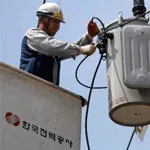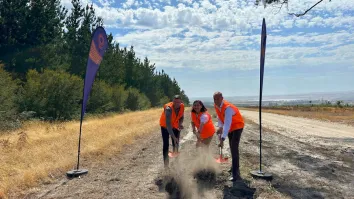
KEPCO blames media for unfair reporting
KEPCO seeks to address false reports blaming it of power failures caused by customers' faults.
According to the Korea Electric Power Corporation, in most cases, where any power outage occurs, regardless of where the fault lies, the media tend to imply or report KEPCO to be at fault. The general public is likewise guilty of pointing their fingers at KEPCO first whenever any power outage occurs.
"Such partial reporting needs to be corrected to reflect the truth instead of inducing false accusations," said an official Korea Electric Power Corporation statement.
The same statement stressed that for residential buildings with in-house electricity facilities, it is the buildings' sole responsibility to manage the facilities for safe and continuous supply of electricity. "Yet, especially in old residential buildings, fire breakouts often occur due to their lack of careful management of power transformers and relevant facilities," said KEPCO.
As an example, the company used an incident that transpired in late July when a building-wide power outage occurred at an old residential building in Seoul. This building, which was over 20 years old and designated for reconstruction by the government, has been experiencing frequent power outages due to its damaged transformer facility. The power outage lasted for about ten hours and ended up in various media channels as one of the major news of that day.
"Despite it being caused by the building's poor management of the facility that could otherwise have been prevented, the media reports mainly focused on the event of power outage, emphasizing people's inconveniences that resulted from the incident rather than examining the root cause of it," said KEPCO.
The company added that although it was the sole responsibility of the building owners and administrators to do remedial actions, a nearby KEPCO branch office dispatched its emergency power generator vehicle as well as its workers.
While this allowed for a fast restoration process and shortened the otherwise prolonged power outage, KEPCO complained that the media did not include any of such supportive contributions of KEPCO. It only focused on reporting the occurrence of power outage and people's irritation and unpleasant experiences caused by it. In its efforts to inhibit preventable power outages in residential buildings KEPCO has been providing monetary incentives to encourage such buildings to replace their old transformers by sponsoring 16,000 won per kW per transformer.
Furthermore, power outage pre-warning systems were also adopted by KEPCO to help prevent subsequent power failures in surrounding areas as well as to deter additional damages to KEPCO's nearby distribution grid. In addition, to better manage public relations, KEPCO felt it would be important for its branch offices to be well-prepared to provide accurate and timely information to the public and also to make appropriate responses.
"This can help prevent possible misleading media reports that may reflect negatively on KEPCO. However small such efforts may be, continuous endeavors on our part to improve our corporate image would allow us to deliver the right message representing Great KEPCO, the Best Company," the company emphasized.



















 Advertise
Advertise







